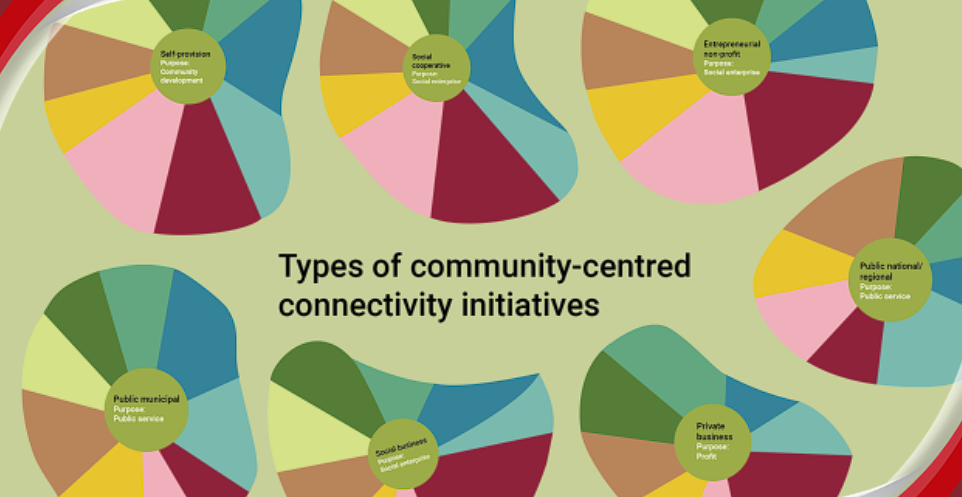Articles
Digital equity amidst socio-economic realities and it's domino effect
-
7 months ago
Apartheid policies systematically marginalised non-white communities, denying them access to basic rights and opportunities, including education and employment.
As a result, generations of South Africans from historically disadvantaged backgrounds have faced systemic barriers to accessing quality education, nutritious food, and essential resources.
In the context of education, apartheid's legacy manifests in stark disparities in access to resources, facilities, and opportunities.
Historically, non-White schools were underfunded and lacked basic amenities, perpetuating a cycle of educational disadvantage for students from marginalised communities.
Despite efforts to address these disparities in the post-apartheid era, the effects of decades of neglect and discrimination continue to linger, contributing to persistent academic achievement gaps and unequal access to educational technology.
Food insecurity, another consequence of apartheid's legacy, disproportionately affects communities that were marginalised under the apartheid regime.
The spatial and economic inequalities created by the past have resulted in unequal access to nutritious food, with many marginalised communities facing limited availability of fresh produce and affordable healthy options.
As a result, children from these communities often experience hunger and malnutrition, which directly impacts their ability to concentrate, learn, and succeed academically.
The interplay between apartheid's legacy, food insecurity, and educational inequalities creates a vicious cycle of disadvantage that undermines the potential of future generations. Children who experience hunger and attend under-resourced schools are more likely to struggle academically, perpetuating cycles of poverty and inequality.
Moreover, the psychological impact of growing up in environments marked by socio-economic injustices can further compound the challenges faced by vulnerable children, affecting their mental health and well-being.
This deepens existing social inequalities, as hunger directly affects a student's ability to concentrate, retain information, and perform well academically.
Fatigue, lack of focus, and poor cognitive function become more prevalent, leading to lower academic achievement and higher dropout rates.
Additionally, low academic performance, aggravated by hunger issues can hinder early childhood adoption of technology. Students who struggle academically may lack the foundational skills necessary to engage with technology effectively, leading to a digital divide between disadvantaged students and their more privileged peers.
This hampers learners ability to effectively engage with curriculum content, resulting in gaps in learning and academic achievement. This further inhibits early childhood adoption of technology and widens the digital divide between disadvantaged students and their more privileged peers.
Driving digital equity in a region like South Africa, where basic human needs such as food shortages remain a pressing issue, requires a nuanced approach that addresses the root causes of inequality and prioritises the well-being of communities.
While technology undoubtedly has the potential to empower individuals and bridge gaps in access to information and opportunities, it cannot be effectively leveraged in isolation from broader socio-economic challenges.
The failure of past technology and digital literacy initiatives in South Africa can be attributed, in part, to the neglect of underlying systemic issues such as poverty, inequality, and food insecurity. These initiatives often relied on centralised data-driven decision-making processes that prioritised surface-level metrics over a genuine understanding of the complex socio-economic landscape.
By focusing solely on population-based data and numerical targets, providers risked overlooking the lived experiences and diverse needs of communities, ultimately resulting in ineffective and unsustainable interventions.
At the heart of the problem lies a disconnect between the rhetoric of digital inclusion and the reality of socio-economic disparities on the ground. While one may tout the benefits of technology and digital literacy for education and economic development, they often fail to address the structural barriers that prevent marginalised communities from accessing these opportunities.
In a context where many households struggle to put food on the table and meet their basic needs, initiatives aimed at promoting digital equity may seem like a luxury rather than a necessity.
Moreover, the reliance on centralised data-driven decision-making processes can depoliticise early childhood policy and undermine efforts to address poverty and inequality at their roots.
The Domino Effect
Systemic inequities rooted in the legacy of apartheid, have resulted in disparities in access to quality education and basic human needs in South Africa. This can set off a chain reaction of interconnected challenges that significantly impact various aspects of education, including hunger issues, academic performance, mental wellness, and even early childhood adoption of technology.
Food insecurity disproportionately affects communities that were marginalised under the apartheid regime. The spatial and economic inequalities created by apartheid have resulted in unequal access to nutritious food, with many marginalised communities facing limited availability of fresh produce and affordable healthy options.
As a result, children from these communities often experience hunger and malnutrition, which directly impacts their ability to concentrate, learn, and succeed academically.
The interplay between apartheid's legacy, food insecurity, and educational inequalities creates a vicious cycle of disadvantage that undermines the potential of future generations. Children who experience hunger and attend under-resourced schools are more likely to struggle academically, perpetuating cycles of poverty and inequality.
This then deepens existing social inequalities, as hunger directly affects a student's ability to concentrate, retain information, and perform well academically. Fatigue, lack of focus, and poor cognitive function become more prevalent, leading to lower academic achievement and higher dropout rates.
Additionally, low academic performance, aggravated by hunger issues can hinder early childhood adoption of technology as students who struggle academically may lack the foundational skills necessary to engage with technology effectively, resulting in gaps in learning and academic achievement.
This further inhibits early childhood adoption of technology and widens the digital divide between disadvantaged students and their more privileged peers.
Moreover, the psychological impact of growing up in environments marked by socio-economic injustices can further compound the challenges faced by vulnerable children, affecting their mental health and well-being.
Gender-based discrimination and bias further compound these challenges, particularly impacting girls' self-esteem and confidence, in fields like STEM where historical perceptions continue to prevail.
This perpetuation of gender stereotypes and bias in education can deter girls from pursuing STEM subjects and careers, including early childhood adoption of technology.
Girls may experience discrimination in the classroom, due to societal expectations or lack of encouragement and support from educators and peers.
Additionally, mental wellness issues stemming from discrimination and stigma may further hinder girls' engagement with technology as they may lack the motivation, to pursue these areas which ultimately undermines their abilities in STEM fields.
As a result, girls may internalise negative stereotypes about their abilities and potential, leading to lower self-esteem and confidence in their academic and professional pursuits. This lack of confidence can have profound implications for girls' educational choices and career trajectories, limiting their opportunities for personal and professional development.
In the context of early childhood adoption of technology, girls may perceive technology-related activities as more suitable for boys, leading them to disengage from opportunities to develop digital literacy skills and explore STEM-related interests.
These interconnected challenges create barriers to students' holistic development and success. From hunger and academic performance to mental wellness and early technology adoption, each aspect is intertwined, requiring comprehensive solutions to encourage an environment conducive to learning and growth for all learners.
By recognising the multifaceted nature of apartheid's legacy and its impact on inequalities, we can provide comprehensive support to students, families, and communities.
Through data-driven insights, personalised interventions, and community engagement, we can seek to break the cycle of disadvantage and create pathways to equitable access to education, nutrition, mental wellness, technology and opportunities for all South African children.
To drive digital equity in South Africa and similar contexts, one must adopt a more holistic and inclusive approach that prioritises the well-being of communities and addresses the underlying causes of inequality. This requires moving beyond narrow technocratic solutions and engaging in genuine dialogue with affected communities to understand their needs, aspirations, and challenges.
Mindful Masterminds recognises the importance of providing holistic solutions that address these challenges. By leveraging innovative educational technology solutions and implementing targeted interventions, we aim to bridge the gap and create equal opportunities for all to thrive in the digital age.
Women play a critical role in household food security and nutrition in Africa. Our mandate is to address gender inequalities in marginalised communities by empowering women entrepreneurs with digital tools to enhance their livelihoods and well-being.
Digitally enabling rural women entrepreneurs means they can leverage technology to enhance their capabilities and access information, on food security and nutrition which will ultimately contributes to the resilience and prosperity of their entire communities
By investing in a comprehensive poverty alleviation digital strategy including access to nutritious food, quality education, mental wellbeing and economic opportunities, Mindful Masterminds hopes to create the conditions for meaningful digital inclusion and empower communities to participate fully in the digital economy.
Related Articles Posts
Categories
Popular Post
-
 SA’s IT spend to outpace GDP growth 1 year ago
SA’s IT spend to outpace GDP growth 1 year ago -
 Vodacom, Netstar launch free in-taxi Wi-... 1 year ago
Vodacom, Netstar launch free in-taxi Wi-... 1 year ago -
 South Africa under pressure to fill cybe... 1 year ago
South Africa under pressure to fill cybe... 1 year ago -
 Organisations with a strong employee val... 1 year ago
Organisations with a strong employee val... 1 year ago -
 Joint policy-in-action event highlights... 1 year ago
Joint policy-in-action event highlights... 1 year ago -
 Boost your digital transformation journe... 1 year ago
Boost your digital transformation journe... 1 year ago








